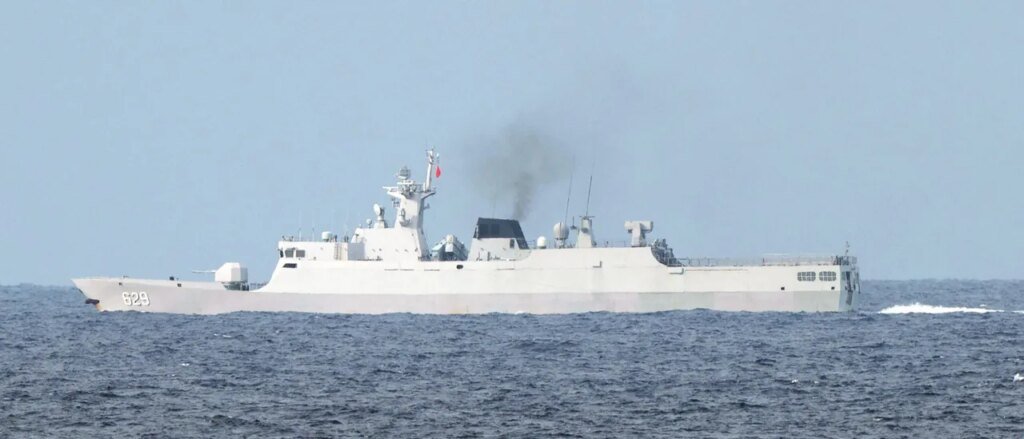Naval Tensions Rise in the South China Sea
A naval spokesperson heightened concerns over the ongoing disputes in contested waters, confirming an incident that occurred when a US naval vessel collided with a Chinese ship near Scarborough Shoal in the South China Sea.
The People’s Liberation Army (PLA) accused the USS Higgins, a guided missile destroyer, of intruding into territories around Scarborough Reef. However, the Navy dismissed these claims as false and reaffirmed its intentions to operate in accordance with international law. This situation follows recent confrontations involving Chinese vessels and the Philippine Coast Guard in the same region.
Megan Green, spokesperson for the US Fleet, stated, “USS Higgins conducted this operation in line with international law and continued with its regular mission. This reflects our commitment to uphold freedom of navigation.” She emphasized the United States’ resolve to operate where international norms permit.
In a related event, while pursuing a Philippine Coast Guard boat, a ship from the Chinese Coast Guard reportedly collided with one of its own Type 052D destroyers.
Chinese military officials claimed that the USS Higgins had “illegally invaded” their waters and pursued the American vessel. They stated that such actions infringe on Chinese sovereignty and disturb the peace in the South China Sea.
In another incident, two Chinese ships collided while attempting to deter a small Philippine Coast Guard vessel just this Monday. It’s worth noting that Chinese naval forces have been increasingly active in the Pacific, even reportedly nearing Hawaiian shores recently.
Under existing bilateral guidelines, the United States is committed to defend the Philippines if there are attacks on its troops operating in the South China Sea.
Multiple nations, including China, the Philippines, and others like Taiwan, Vietnam, Malaysia, and Brunei, have overlapping claims in parts of the South China Sea, where approximately $3 trillion in maritime trade passes annually. China and Taiwan require prior notification and approval for military vessels to navigate through their waters.
Green reiterated that the United States endorses freedom of navigation globally. She noted that as long as certain nations extend their claims beyond what international law permits, the U.S. will continue to uphold maritime rights and freedoms for all nations.







